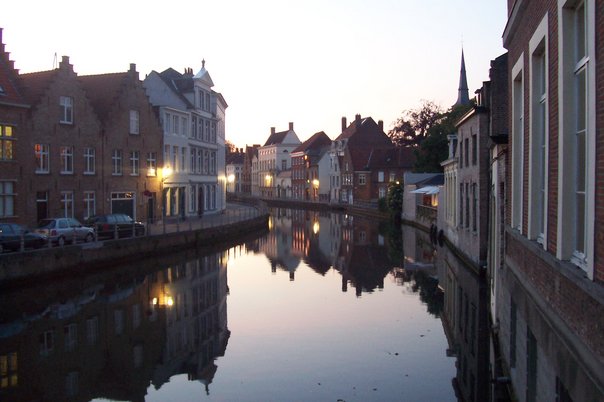
In Bruges
Die tote Stadt
Music composed by Erich Korngold, opera directed by Carmen Jakobi, Saturday 25th June 2022, at Longborough Festival Opera, Moreton-in-Marsh, Gloucestershire, reviewed by David Truslove
You know that you have witnessed something special when a rapt audience withholds its applause, before roaring its approval. Such was the case following Erich Wolfgang Korngold’s Die tote Stadt, given by Longborough Festival Opera. A similar reception reportedly greeted the work’s joint premiere in Hamburg and Cologne in 1920, when the precociously talented composer (already hailed a genius by Mahler) was barely 23. Performances ran for over a decade, reaching more than 80 stages worldwide before the composer fell out of favour. The work only received its first professional outing in Britain in 2009, at the Royal Opera House, prompting The Times to ask “How can it have taken almost 90 years for Die tote Stadt to get a staged performance in the UK?”. But even after this long overdue appearance, Michael Tanner of The Spectator grudgingly characterised the work as an “almost impressive opera”.
Korngold’s late-romantic style was no longer fashionable by the time he settled in the United States in the mid-1930s. More recently, attitudes towards this wunderkind have softened and we no longer dismiss a composer who brilliantly bridged the divide between serious music and Hollywood film scores. Associations with The Adventures of Robin Hood and Errol Flynn aside, the unjustified neglect of Die tote Stadt can also be attributed to its unprepossessing title (The Dead City), the hefty emotional and vocal demands made on the singers and, not least, to the need for a large orchestra.
Considered a farewell to Old Vienna and the Austro-Hungarian Empire, Die tote Stadt is based on the 1892 novel Bruges-la-Morte by the Belgian symbolist Georges Rodenbach, for whom Erich and his father Julius co-wrote the libretto under the pseudonym Paul Schott. The plot involves a grieving young widower Paul who struggles to come to terms with the loss of his wife, Marie. His house in Bruges (the eponymous dead city) becomes a “Temple of Memories” which painfully intrude when he meets a dancer, Marietta, who is Marie’s living double and part of a group of street players. Unable to reconcile the sensual Marietta with his saintly wife who he believes has returned to life, the line between reality and fantasy becomes ever more tenuous. In the third act, Paul strangles his “cheap fake” of a lover with a lock of Marie’s hair which he has preserved as a sacred relic. Korngold (departing from the novel’s ending) turns this murder into a dream and Paul, released from his torment, leaves Bruges for good.
Using this dream-based narrative, director Carmen Jakobi and designer Nate Gibson tap into early 20th century preoccupations with a simple but effective set atmospherically lit by Ben Ormerod. Three levels fashioned from numerous gilt-edged picture frames artfully evoke the city’s gloomy canals and Paul’s obsession with Marie. A chaise longue suggests a psychoanalyst’s couch and a candlelit shrine brings to mind the gold leaf of Gustav Klimt. Korngold’s huge orchestral score (reduced here by Leonard Eröd) draws on Richard Strauss, Puccini and early Schoenberg.
If there is excess in the dense textures and strenuous vocal writing, it’s handled with unfailing commitment and stamina, especially by the principal singers, Peter Auty as the angst-ridden Paul and Rachel Nicholls as the free spirit Marietta. Learning her part in just five weeks (replacing Noa Danon), her “Marietta’s Lied” was beautifully shaped and sung. Together, their voices soared over the orchestra to overcome the challenging high vocal writing. Supporting roles were well defined; Benson Wilson as Paul’s friend Frank was a credible presence, more so as one of the theatrical players Pierrot, and bringing much beauty to the song “Mein Sehnen, mein Wähnen”. Stephanie Windsor-Lewis held the ear and eye too in the cameo role of the housekeeper Brigitta, while the acting troupe (Luci Briginshaw, Benson Wilson, Alexander Sprague and Lee David Bowen) provided a foil, if one that somewhat outstayed its welcome in Act Two. In the pit, Justin Brown, conducting the Longborough Festival Orchestra, was alert to the score’s balance and narrative sweep, underplaying Korngold’s textural indulgences yet savouring the work’s expressive lyricism.
How could a mere twenty-three-year-old have possessed such emotional insight, prompting Anton Webern to declare “Publishers’, performances – the boy has everything”? Altogether, a magnificent evening.










